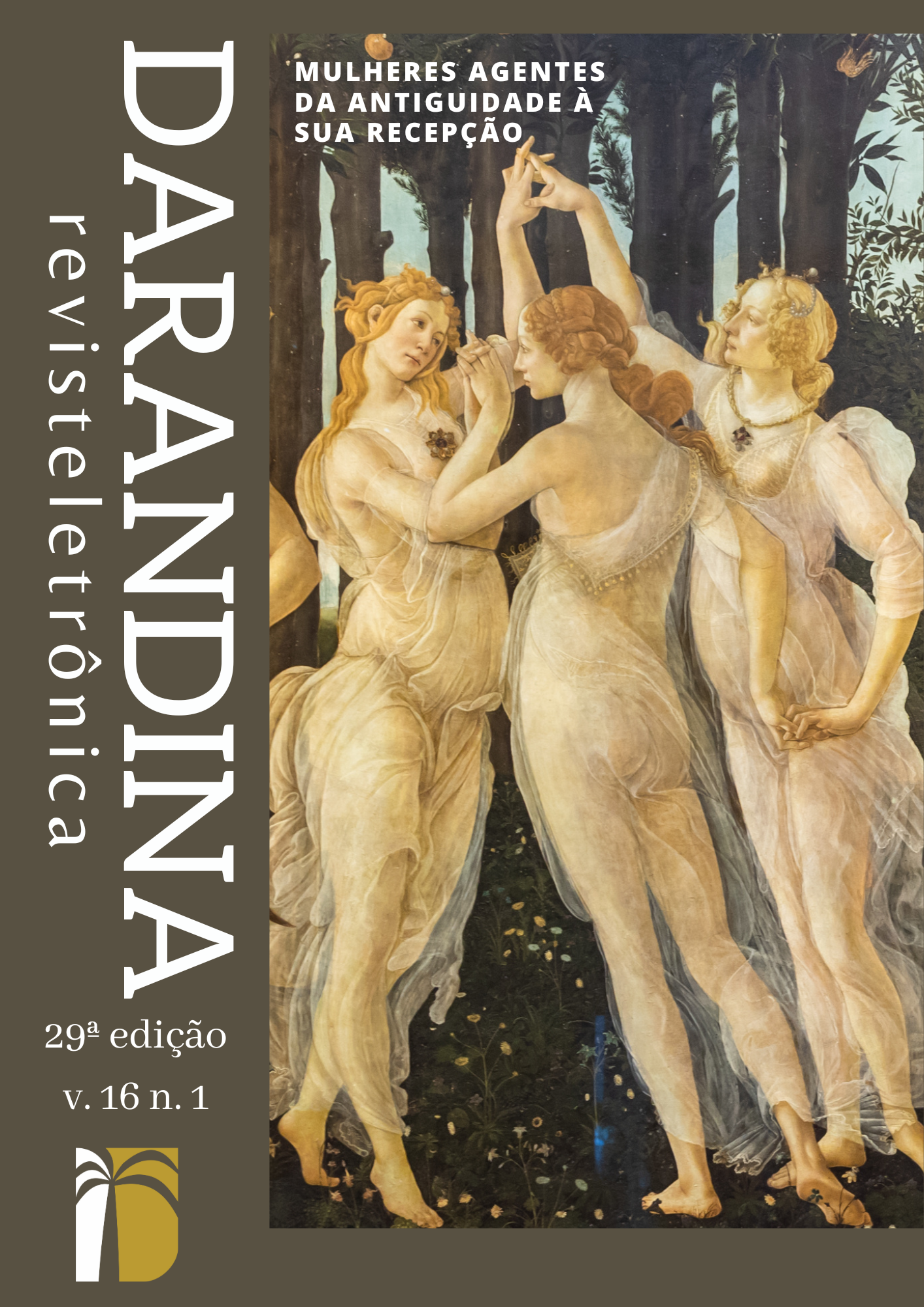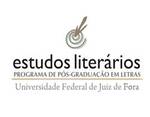DICÇÕES FEMININAS NA LITERATURA
CONVERGÊNCIAS NOS ESCRITOS DE CHRISTINE DE PIZAN E MADELINE MILLER
DOI:
https://doi.org/10.34019/1983-8379.2023.v16.40855Keywords:
Christine de Pizan, Circe, Feminine condition, Madeline MillerAbstract
This article presents a comparative reading between the writings of the medieval Italian author Christine de Pizan (1364-1430), in The Book of the City of Ladies (1405), and the contemporary North American author Madeline Miller (1978-present), in Circe (2018). Despite belonging to different times and places, Pizan and Miller converge in questioning their reality and propose a change in that paradigm through their writings. In this way, it’s examined the convergence of the works of these medieval and contemporary writers in the representation of Homer’s sorceress Circe as an independent woman, detached from male figures and the perversion to which she was subjected after her first appearance in Homer’s Odyssey. This study also examines how the ideas and demands of these writers are coherent with their historical contexts: the Middle Ages and the contemporary world. The theoretical foundations of this article is based on postulates of the feminist writer Virginia Woolf (1882-1941) will be used to understand the need for female authorship to propose new representations of women in literature, along with the ideas of Christine de Pizan's translators and researchers: Luciana Calado Deplagne and Rosalind Brown-Grant – responsible, respectively, for the Portuguese and English versions of The Book of the City of Ladies – to understand Pizan’s historical context.
Downloads
References
BRACKE, Evelien. Of Métis and Magic: The Conceptual Transformations of Circe and Medea in Ancient Greek Poetry. 2009. Tese (PhD. em Ancient Classics), National University of Ireland, Maynooth, 2009.
BROWN-GRANT, Rosalind. Introduction. In: PIZAN, Christine. The Book of the City of Ladies. Tradução de Rosalind Brown-Grant. Londres: Penguin, 1999. p. 23-52.
CALVINO, Ítalo. Por que ler os Clássicos. Tradução de Nilson Moulin. 2. ed. São Paulo: Companhia das Letras, 2007.
CANDIDO, Maria Regina. Medeia, Mito e Magia: a imagem através do tempo. Rio de Janeiro: UERJ/NEA, 2010.
CAVALCANTI, Ildney. Prefácio. In: PIZAN, Christine. A Cidade das Damas. Tradução de Luciana Eleonora de Freitas Calado Deplagne. Florianópolis: Mulheres, 2012. p. 11-16.
DEPLAGNE, Luciana. Apresentação. In: PIZAN, Christine. A Cidade das Damas. Tradução de Luciana Eleonora de Freitas Calado Deplagne. Florianópolis: Mulheres, 2012. p. 17-45.
FEDERICI, Silvia. Mulheres e caça às bruxas: da Idade Média aos dias atuais. Tradução de Heci Regina Candiani. São Paulo: Boitempo, 2019.
HOMERO. Odisseia. Tradução de Frederico Lourenço. São Paulo: Penguin Companhia, 2011.
LEITE, Lucimara. Christine de Pizan e o seu projeto utópico. Morus – Utopia e Renascimento, São Paulo, v.13, p. 115-120, 2018. Disponível em: http://www.revistamorus.com.br/index.php/morus/article/view/340. Acesso em: 28 set. 2022.
MADUREIRA, Stéphanie. Relacionando Magia e Gênero na Grécia Antiga: Circe e Medeia como representações sociais de feiticeiras na Atenas Clássica (século V a.C). Hélade, Universidade Federal Fluminense, v.5, n.2, p. 281-300, maio 2020. Disponível em: https://periodicos.uff.br/helade/article/view/38278/24018. Acesso em: 17 set. 2022.
MILLER, Madeline. Circe. Tradução de Isadora Prospero. São Paulo: Planeta, 2019.
MILLER, Madeline. Circe, a Vilified Witch From Classical Mythology, Gets Her Own Epic. The New York Times: Nova York, 6 abril 2018. Jornal on-line. Disponível em: https://www.nytimes.com/2018/04/06/books/madeline-miller-circe-novel.html?smid=url-share. Acesso em: 17 set. 2022.
MORALES, Helen. Presença de Antígona: o poder subversivo dos mitos antigos. Tradução de Angela Lobo de Andrade. Rio de Janeiro: Rocco, 2021.
NEVES, Caroline; NOGUEIRA, Nícea. Virginia Woolf e seu papel como crítica literária. IPOTESI. Juiz de Fora, v.23, n.2, p. 28-38, jul./dez. 2019. Disponível em: https://periodicos.ufjf.br/index.php/ipotesi/article/view/29178. Acesso em: 15 fev. 2023.
PIZAN, Christine. A cidade das Damas. Tradução de Luciana Eleonora de Freitas Calado Deplagne. Florianópolis: Mulheres, 2012.
WOOLF, Virginia. Mulheres e ficção. Tradução de Leonardo Fróes. São Paulo: Penguin Classics; Companhia das Letras, 2019.
WOOLF, Virginia. Profissões para mulheres e outros artigos feministas. Tradução de Denise Bottmann. Porto Alegre: L&PM, 2018.
WOOLF, Virginia. Um teto todo seu. Tradução de Bia Nunes de Sousa, Glauco Mattoso. São Paulo: Tordesilhas, 2014.
VERNANT, Jean-Pierre. O universo, os deuses, os homens. Tradução de Rosa Freire d’Aguiar. 13. ed. São Paulo: Companhia das Letras, 2000.
Downloads
Published
How to Cite
Issue
Section
License
Copyright (c) 2023 Gabriela Souza Farias de Azevedo

This work is licensed under a Creative Commons Attribution 4.0 International License.

Este trabalho está licenciado sob uma licença Creative Commons Attribution 4.0 International License.
Direitos Autorais
Autores que publicam nesta revista concordam com os seguintes termos:
1. Autoras e autores mantêm os direitos autorais e concedem à revista o direito de primeira publicação, sendo esta licenciada sob a Creative Commons Attribution License 4.0 Internacional.
2. Autoras e autores têm permissão e são estimuladas(os) a publicar e compartilhar o trabalho com reconhecimento da publicação inicial nesta revista.
3. Autoras e autores dos trabalhos aprovados autorizam a revista a ceder o conteúdo de seus trabalhos, após sua publicação, para reprodução em indexadores de conteúdo, bibliotecas virtuais e similares.
Para mais informações sobre a Creative Commons Attribution 4.0 International License, acessar: https://creativecommons.org/licenses/by/4.0/



















